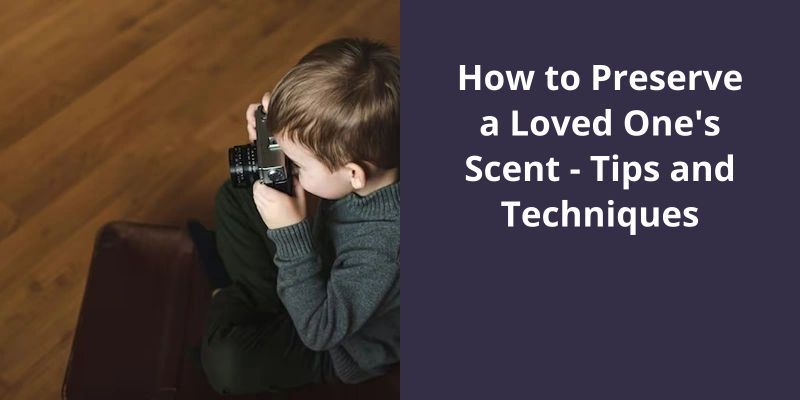Going nose blind on cologne, also known as olfactory fatigue, happens when your nose gets used to the smell of your cologne after continuous exposure and gradually stops recognizing the scent. It’s a natural protective mechanism of our olfactory system to filter out familiar scents and stay alert for new odors, particularly those that could signal danger. Thus, while you may not detect your cologne after a while, others around you can still smell it. If you want to smell your cologne for longer periods, consider switching between different fragrances or taking regular breaks from wearing it, so your sense of smell doesn’t get desensitized. Remember, constantly noticing your cologne’s smell can mean you’ve applied too much.

Can You Become Nose Blind to Perfume?
Firstly, it’s essential to understand that nose blindness isn’t a scientific or medical term but rather a laymans language to describe olfactory fatigue or sensory adaptation. When a person sprays a perfume or cologne, the scent molecules enter the nose and bind to the olfactory receptors, which send signals to the brain, resulting in the perception of smell. Over time, the receptors start to become desensitized to the particular perfume, leading to nose blindness or the inability to detect the scent accurately.
Perfume Ingredients and How They Affect Scent Perception
- Aldehydes: A family of organic compounds that create a clean, soapy smell
- Bergamot: A citrus fruit that provides a fresh, sweet, and slightly spicy note
- Cedarwood: A type of wood that adds a warm, woody, and sometimes smoky scent to a perfume
- Jasmine: A flower that creates a sweet, floral, and somewhat exotic smell
- Musk: An animal-derived ingredient that can provide a sensual and musky scent
- Patchouli: A plant that provides a deep, earthy, and sometimes spicy fragrance
- Rose: A classic floral scent that can range from light and airy to deep and rich
- Sandalwood: A fragrant wood that adds a rich, warm, and creamy scent to a perfume
- Vanilla: An ingredient that provides a sweet, warm, and comforting scent
It’s a common frustration that many people experience – spritzing on their favorite cologne, only to have it’s scent seemingly disappear within minutes. But what causes this phenomenon, and why does it seem to happen to some people more than others? The answer lies in the complex chemistry of our skin, and the many factors that can influence the way a fragrance interacts with our unique biology. From diet and medication to stress levels and age, there are a multitude of factors that can impact how long and strongly a scent lingers on our skin.
Why Does Cologne Not Smell on Me?
There are a number of reasons why a particular cologne may not smell as strong or as noticeable on an individual as it does on others. One of the primary factors is the composition of the individuals skin. Every persons skin is made up of a unique blend of water, acids, fats, proteins, and sugars, all of which can subtly alter the way that various scents and fragrances interact with the skin. Additionally, factors like stress, diet, medication, and even age can further impact the way that scents are absorbed and perceived.
Cheap or low-quality fragrances may not be as strong or as long-lasting as higher-end options, and may also be more likely to be affected by changes in skin chemistry. Similarly, different types of fragrance notes or scents may simply not be as compatible with an individuals personal chemistry, leading them to not come through as strongly.
For example, if a person applies too little fragrance, or does so in a way that doesn’t allow it to properly adhere to the skin (such as spraying it too far away), it may simply not be as noticeable. Similarly, cologne that’s been stored improperly, or that’s been left out in the sun or other harsh environments, may lose some of it’s potency or fragrance.
Source: Why Your Cologne Doesn’t Smell As Good As It Should – GQ
As it turns out, nose blindness isn’t only limited to perfume, but can also happen with many other scents we encounter regularly. But why exactly does our nose become immune to smells that are constantly present in our environment? Let’s delve deeper into the science behind nose blindness.
Why Can’t I Smell Cologne on Myself?
It happens because the olfactory cells in our nose become desensitized to the odor molecules. Our brain stops receiving signals from our nose about this particular scent after a while. This is the reason why we cant smell our own perfume after a while, even though others can still smell it on us. Although the smell doesn’t disappear, our awareness of it does.
One way of testing if our nose is getting used to a perfume or not is by smelling something that’s a strong scent, like coffee beans or citrus slices. This can stimulate the nose and help reset our olfactory cells, allowing us to smell the perfume once again. Another way is to apply the perfume to different parts of the body, like the back of the neck or behind the ears. This allows us to keep smelling it on ourselves throughout the day, as the scent changes on different parts of the body.
Apart from this, it’s important to note that some people have a less sensitive sense of smell than others. This means they may not notice the scent of perfume as much and may need to apply more for it to be noticeable. Similarly, factors like age, medication, and certain medical conditions can also affect our sense of smell, making it harder to detect fragrances.
Lastly, the type of perfume or cologne we use can also affect how long it lasts on our skin. Fragrances with higher concentrations of essential oils tend to last longer, while lighter scents may fade quicker. It’s important to note that other factors like humidity, temperature, and even our own body chemistry can also affect how long a fragrance lasts on us.
Our noses getting used to the smell of perfume or cologne is completely normal and is a result of nose blindness. It’s important to keep this in mind when applying fragrances and to test the strength and longevity of the scent on our own skin.
However, it’s not uncommon for people to wonder whether they should be able to smell their chosen scent throughout the day or not. In this article, we’ll take a closer look at the science of scent, how it reacts with the body, and what you can do to ensure that you’re not overwhelming others with your signature fragrance.
Am I Supposed to Be Able to Smell My Cologne?
Cologne can be a tricky thing to get right. It’s an art form, really – finding the right scent and knowing exactly how much to apply. You want to smell good, but you don’t want to be overbearing. You want people to notice your scent, but you don’t want them to be overwhelmed by it. Thats why it’s important to understand that cologne is meant to be worn subtly. You shouldnt be able to smell it from a distance, and you certainly shouldnt be able to smell it on yourself all day long.
Another reason why you shouldnt be able to smell your cologne is that it can be overwhelming to others.
One way is to ask someone you trust for their opinion. If they can smell your cologne from a distance, youre probably wearing too much. Another way is to pay attention to how you feel – if you can smell your cologne all day long, youre definitely wearing too much. Remember, less is more when it comes to cologne.
Finally, it’s worth noting that different types of cologne will have different levels of strength. Some are designed to be very subtle, while others are meant to be more powerful. It’s important to choose a cologne that fits your personal style and the occasion youre wearing it for. If youre going to a job interview, youll want to wear something subtle and understated, while if youre going out for a night on the town, you might want to choose something a bit more potent.
Cologne should be worn lightly – just a touch on the wrists or neck – in order to enhance your natural scent, not replace it entirely.
While nose blindness affects everyone to some degree, some people seem to go nose blind much faster than others. This can be especially true in response to unpleasant smells, but why does it happen? Recent research suggests that the shape and chemical properties of an odorant can play a significant role in how quickly or slowly nose blindness occurs. In this article, we’ll explore these factors in more detail and investigate strategies for combating nose blindness.
Why Do I Go Nose Blind So Fast?
Have you ever noticed that you become “nose blind” to certain smells faster than others? It’s a common phenomenon that occurs when your nose becomes accustomed to a particular odor, making it less noticeable over time.
One possible reason for this is that our brains are wired to be more sensitive to negative stimuli. This is because, from an evolutionary perspective, being able to quickly identify and respond to potential threats was crucial for survival. So, when we encounter unpleasant smells, our brains may be more attuned to them, causing us to become nose blind faster.
Some molecules are larger and more complex, which can make them more difficult to break down and eliminate from the air. In contrast, smaller molecules like those found in fresh cut grass or flowers tend to be more volatile, evaporating quickly and becoming less noticeable over time.
In addition, nose blindness can also be influenced by environmental factors such as humidity, temperature, and air flow. For example, high humidity can cause odors to linger in the air longer, while cold temperatures can cause the molecules to condense and become less volatile. Similarly, air flow can help to disperse odors more quickly, making them less noticeable over time.
From the chemical makeup of the odorant to environmental factors like temperature and humidity, our ability to detect and respond to odors is a complex and nuanced process. As scientists continue to unravel the mysteries of our sense of smell, we may gain a better understanding of how and why nose blindness occurs.
Conclusion
The neurological process involved in detecting and processing scents highlights the complexity of the human brain and the intricate ways in which it interacts with the external world. As such, nose blindness serves as a reminder of our ever-evolving relationship with our environment, and the ways in which we adapt to and interact with the stimuli around us. Ultimately, it’s a testament to the dynamic nature of human perception and the many mysteries that underlie our experiences of the world.





